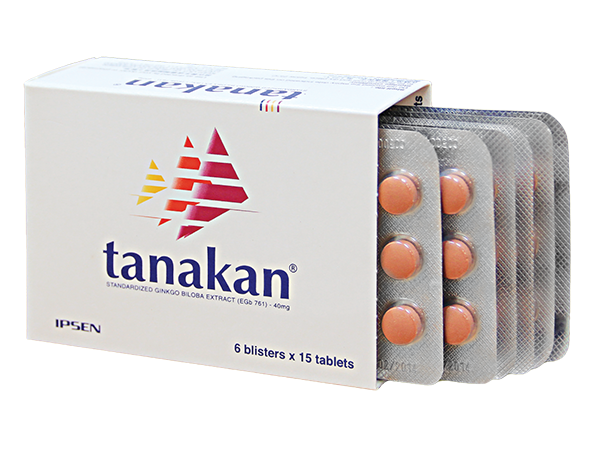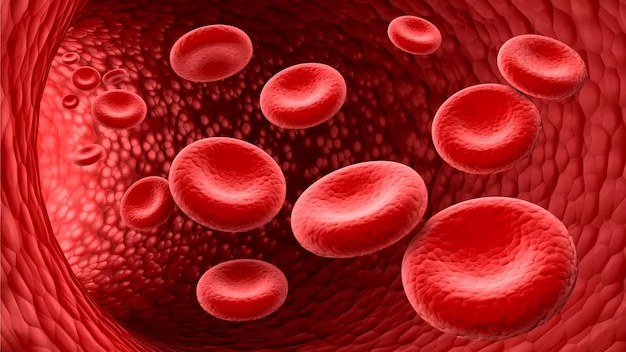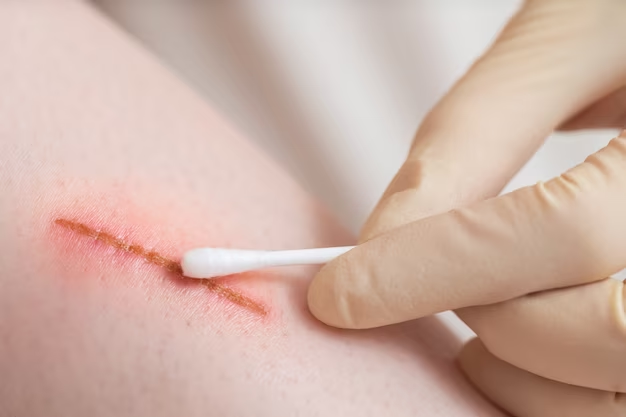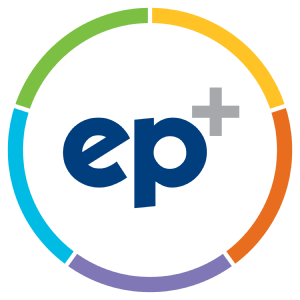Ginkgo biloba is an old tree species with a long history associated with healing in the classical record of Japanese and Chinese herbal medicine1. In modern medicine, science discovered that it was the leaves that contain the active ingredients, flavonoids and terpenoids, that are believed to have medicinal effects2. Hence, Ginkgo biloba leaf extracts are often used as dietary supplements, making it one of the most commonly taken herbal supplements among Malaysians3.
Benefits Of Ginkgo Biloba

Ginkgo biloba extract has attracted a considerable amount of research interest in science and medicine3. According to the highly trusted and respected database from The United States National Library of Medicine (NLM) at the National Institutes of Health, a PubMed search of the keyword Ginkgo Biloba yielded more than 5000 research papers investigating its effects in relation to scientific medicine, with a rising trend since the last 3 decades.

Note. The image was extracted from PubMed Search Results using the keyword “Ginkgo Biloba” and sorted by year. From National Center for Biotechnology Information (NCBI)[Internet]. Bethesda (MD): National Library of Medicine (US), National Center for Biotechnology Information; [1988] – [cited 2023 Aug]. Available from: https://www.ncbi.nlm.nih.gov/
One of the concerns with Ginkgo biloba supplements is over the quality of the extracts due to adulteration. There can sometimes be inconsistent amounts of active ingredients in different Ginkgo biloba extracts5. It is worth noting that typically in clinical trials, Ginkgo biloba leaf extracts tested, used, or consumed are standardized to contain 24% of flavonoids and 6% terpenoids (also known as EGb 761), with standard dosages of 40mg 3 times per day or 80mg twice daily recommended by manufacturers6. Hence it means that the effects seen in the research, regardless of whether beneficial or have side effects, correlate to these forms and standard dosages. Tanakan® is a prime example of highly purified, standardized pharmaceutical grade ginkgo biloba leaves extract (EGb 761) which contains 22.0% – 27.0% of flavonoids expressed as flavone glycosides, 5.4% – 6.6% of terpene lactones, 2.8% – 3.4% of ginkgolides A, B, C, and 2.6% – 3.2% of bilobalide. This ensures that it is a well-tested, well-tolerated and safe product when the standardized form and correct dose (40mg 3 times a day at mealtimes) is consumed2, 6.

So, what are the benefits of taking Ginkgo biloba extract as a diet supplement? Ginkgo biloba extract is known to improve blood flow and circulation in the body.2, 7. Research shows that Ginkgo extract works mainly by reducing the thickness of blood so that it flows better to other parts of the body8, 9. When blood circulation is in tip-top condition, there are many benefits that it can bring to our health and well-being.

There are many functions of blood circulation, for example transporting oxygen, nutrition and carrying heat to every organ in the body and removing waste products to maintain a proper environment for the normal growth and function of the body. Blood also contains immune system cells which defend the body from diseases by fighting off bacteria. Therefore, good blood circulation comes with a myriad of benefits, such as:
- Decreased fatigue or tiredness due to good amounts of oxygen and nutrients delivered
- Maintaining warmth and temperature in the body10
- Protection from infections which leads to better wound healing potential11, particularly in long-standing wounds in the extremities

To sum up, Ginkgo biloba extract is known to be able to improve blood flow in the body, thus promoting healthy circulatory functions and reaping the benefits of good blood circulation.
The information, including but not limited to, text, graphics, images and other material contained in this article is intended for your general knowledge and informational purposes only. No material on this site is intended to be a substitute for professional medical advice, diagnosis or treatment for specific medical conditions. You should not use this information to diagnose or treat a health problem or disease without consulting with a qualified healthcare provider. Always seek the advice of your medical doctor or qualified healthcare provider with any questions you have regarding a medical condition or treatment before undertaking them, and never disregard professional medical advice or delay in seeking it because of something you have read in this article.
References
- Hori, Abstract of “A historical survey of Ginkgo biloba based on Japanese and Chinese classical literatures”, Plant Morphology, 2001, 31, 31-40. https://www.researchgate.net/publication/276190567_A_historical_survey_of_Ginkgo_biloba_based_on_Japanese_and_Chinese_classical_literatures
- Hanafi, N. I. bt. (2014, August 11). Ginkgo Biloba. PORTAL MyHEALTH. Retrieved from http://www.myhealth.gov.my/en/ginkgo-biloba-2/
- Yeong, S. W., & Choong, Y. C. (2017). Knowledge and characteristics of herbal supplement usage among community pharmacy customers in a Malaysian population. Complementary therapies in medicine, 35, 92–108. https://doi.org/10.1016/j.ctim.2017.09.005
- Shareena, G., & Kumar, D. (2022). Traversing through half a century research timeline on Ginkgo biloba, in transforming a botanical rarity into an active functional food ingredient. Biomedicine & pharmacotherapy = Biomedecine & pharmacotherapie, 153, 113299. https://doi.org/10.1016/j.biopha.2022.113299
- Cooperman, T. (2022, January 03). Ginkgo (Ginkgo Biloba) Supplements Review. Consumer Lab. https://www.consumerlab.com/reviews/ginkgo-supplements-memory-review/ginkgobiloba/
- Nguyen T, Alzahrani T. Ginkgo Biloba. [Updated 2022 Jul 4]. In: StatPearls [Internet]. Treasure Island (FL): StatPearls Publishing; 2023 Jan-. Available from: https://www.ncbi.nlm.nih.gov/books/NBK541024/
- Sarkar, C., Quispe, C., Jamaddar, S., Hossain, R., Ray, P., Mondal, M., Abdulwanis Mohamed, Z., Sani Jaafaru, M., Salehi, B., Islam, M. T., Faizal Abdull Razis, A., Martorell, M., Pastene-Navarrete, E., & Sharifi-Rad, J. (2020). Therapeutic promises of ginkgolide A: A literature-based review. Biomedicine & pharmacotherapy = Biomedecine & pharmacotherapie, 132, 110908. https://doi.org/10.1016/j.biopha.2020.110908
- Chong, P. Z., Ng, H. Y., Tai, J. T., & Lee, S. W. H. (2020). Efficacy and Safety of Ginkgo biloba in Patients with Acute Ischemic Stroke: A Systematic Review and Meta-Analysis. The American journal of Chinese medicine, 48(3), 513–534. https://doi.org/10.1142/S0192415X20500263
- Sim, R. H., Sirasanagandla, S. R., Das, S., & Teoh, S. L. (2022). Treatment of Glaucoma with Natural Products and Their Mechanism of Action: An Update. Nutrients, 14(3), 534. https://doi.org/10.3390/nu14030534
- NHS Blood and Transplant. (n.d.). Functions of Blood: regulation. Retrieved August 15, 2023, from https://www.blood.co.uk/news-and-campaigns/the-donor/latest-stories/functions-of-blood-regulation/#:~:text=The%20blood%20plays%20a%20role,its%20surface%20with%20its%20surroundings.
- Han, G., & Ceilley, R. (2017). Chronic Wound Healing: A Review of Current Management and Treatments. Advances in therapy, 34(3), 599–610. https://doi.org/10.1007/s12325-017-0478-y


